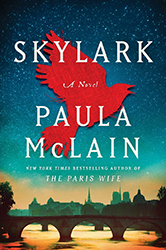In Shastri Akella’s vibrant debut novel, The Sea Elephants, sixteen-year-old Shagun Mathur leaves his home on the Bay of Bengal for boarding school. Despite the move, Shagun cannot leave behind the memory of his twin sisters, whose tragic deaths he witnessed firsthand; nor can he escape the domineering specter of his abusive father, Pita-Jee. Shagun will never be the man Pita-Jee wants him to be: a straight male made in the image of Hanuman, known in Hindu epics for his strength and masculinity.
At boarding school — and at each subsequent phase of this queered Bildungsroman — Shagun is met with a gauntlet of antagonists and abusers. Their violent, homophobic instincts perpetuate the rigid social order of late twentieth-century India. “To be virtuous,” Pita-Jee reminds his son, “is the choice you make when your body tempts you to be otherwise.” Yet only in a culture that ostracizes — and criminalizes — queerness are Shagun’s feelings considered temptations, and the repression of genuine love and desire deemed virtuous. Horrifying as they are, Shagun’s encounters with cruelty incite a period of self-learning that persists throughout the novel. Often involving the body, these moments reveal how trauma influences sexuality; how physical trust is built and broken, and how the body can, for better or worse, learn and unlearn.
As threat and ultimatum raise the stakes of Shagun’s future, he finds support in a tight-knit traveling street-theater troupe that performs Hindu myths. Such myths become integral to the novel itself — including its title — and demonstrate Akella’s lyric range. But when the traveling theater group is moored, Shagun meets Marc, a Jewish photographer, and the bildungsroman transitions deftly into a political love story. Marc’s family is from Jew Town, a historic enclave in Southwest India and a haven for Jews across multiple waves of diaspora. Jew Town serves as a well-timed reminder that sexuality and gender are not the only aspects of identity for which people are persecuted. Judeo-Malayalam, the fused language of Marc’s childhood, represents how language itself can help us make room for hybridity and individuality, even in cultures dominated by strict binaries and rigid social hierarchy.
The story doesn’t end there. In fact, some of its most radical twists and turns take place in later chapters — and the climactic final events act as confluences of the novel’s characters and themes, not departures. Throughout the book, Shagun continues to find empathetic friends who protect him and help him grow. This is one of Akella’s great achievements: he depicts the vital, life-giving force of genuine allies. These vibrant secondary characters are the novel’s plot-movers, fate-holders, question-askers, and humor-providers. Only with their love and support does Shagun stand a chance at resisting hegemonic social structures and breaking down the internalized barriers rooted deep within him.
Nathan Blum is an MFA Candidate in Fiction at Vanderbilt University and editor-in-chief at Nashville Review. His writing appears or is forthcoming in Westchester Review, Cagibi, and Ploughshares.





